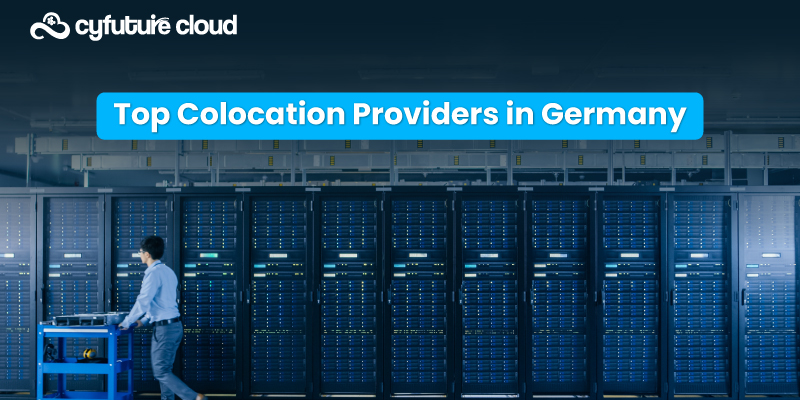Table of Contents
- How will cloud technology help in the development of Ayodhya city?
- The Ideal City Enabler
- How AI technology is Helpful in Ram Mandir Ayodhya Safety?
- How can Cyfuture Cloud enable Ayodhya City through cloud technology?
Ram Mandir inauguration not only opens the temple doors but also opens the doors to a technological, economical, environmental, and infrastructural growth in Ayodhya. A critical success factor of Ayodhya development mission is the underlying technology platform that will power it. That includes Artificial Intelligence, Cloud storage, cloud hosting, data center India, and more.
|
Technology is Helpful! A developed city uses data produced by internet-connected devices to derive insights andimprove residents’ quality of life, measured by health, work-life balance, education,social connections, personal security, civic engagement, environment, and subjectivewell-being. |
A developed city use data produced by internet-connected devices to derive insights and
improve residents’ quality of life, measured by health, work-life balance, education,
social connections, personal security, civic engagement, environment, and subjective
well-being.
How will cloud technology help in the development of Ayodhya city?
The incorporation of cloud technology presents a vast opportunity to drive the holistic growth of Ayodhya City. To attain genuine success, the city’s infrastructure must systematically cater to seven key requisites, each indispensable in enhancing efficiency and resilience. Leveraging technology is helpful in addressing these critical facets, ushering in a new era of advancement and prosperity for the city.
Fully Managed and Available IT Infrastructure and Data Centre:
The establishment of a Fully Managed and Available IT Infrastructure and Data Centre plays a pivotal role in shaping Ayodhya City’s tourism landscape. As Ayodhya anticipates a significant surge in tourist footfall, particularly with the inauguration of the Ram Mandir, the demand for seamless and efficient IT services becomes paramount.
A robust IT infrastructure and data center are essential to cater to the needs generated by the influx of tourists. This infrastructure, managed round the clock and equipped with smart, scalable, and agile features, ensures that the city can handle the substantial data flow associated with tourism activities. A well-managed IT infrastructure is essential to the efficient operation of tourism-related services, Whether it is for managing bookings, providing information, or ensuring the safety and availability of data pertaining to tourists.
Additionally, the purposeful placement of data centres in different seismic zones guarantees that essential services continue to function even in the event of a natural disaster, safeguarding the infrastructure associated with tourism from any disruptions.
Essentially, the Fully Managed and Available IT Infrastructure and Data Centre are the backbone of Ayodhya City’s tourism ecosystem, ensuring a technological foundation that is not only strong and dependable but also capable of enhancing visitors’ overall experiences and facilitating the efficient management of tourism-related data and services.
Data Storage:
After the Ram Mandir is inaugurated, Ayodhya expects a significant number of visitors, which will create petabytes of data. To satisfy legal and administrative obligations, it is essential to have scalable, reliable, and affordable data storage solutions in order to keep and access this data for extended periods of time.
Efficient Reservation Systems:
Reservation systems that are timely and efficient may be implemented thanks to agile infrastructure. Tourism organisations that possess the capability to instantly expand their resources can manage unexpected surges in online reservations without sacrificing the functionality of their websites. This guarantees travellers a smooth and satisfying reservation process.
Data Analytics for Personalized Experiences:
The tourist industry can more easily integrate advanced data analytics thanks to agile infrastructure. Through rapid processing and analysis of large volumes of data, companies may obtain important insights into the tastes and behaviours of travellers. By customising services and suggestions depending on user preferences, this data-driven strategy enables the creation of personalised experiences.
Integration of Audio-Visual Systems:
With open designs in worship spaces, it’s easy to seamlessly integrate audio-visual technologies. This could mean incorporating advanced lighting, projection, and sound systems that work together to enhance the overall worship experience.
Access Control and Authorization:
Integrating facial recognition with data sharing allows organizations to manage access control more effectively. By analyzing facial data and sharing it with authorization databases, systems can grant or deny access based on predefined criteria. Analytics can track and provide insights into access patterns, helping organizations refine their security protocols.
The Ideal City Enabler
The ideal enabler of Ayodhya city is a one stop cloud enablement platform featuring customised products that give you greater productivity, agility and scalability – without compromising on security and control. Such a partner can provide a cloud platform that is:
- Integrated: The orchestration framework will be designed to deliver complete visibility of disparate IT environments and seamless integration (from colocation to the cloud environment).
- Managed: End-to-end infrastructure monitoring, service management and personalised support services will be delivered through industry best practice and certified cloud specialists.
- Secure: A 360° security framework will underpin a hybrid cloud infrastructure, plus its applications, users and data, to deliver complete protection and adherence to regulatory and security compliance requirements.
How AI technology is Helpful in Ram Mandir Ayodhya Safety?
In an era of swift technological advancement, artificial intelligence (AI) becomes an indispensable enabler for strengthening security protocols in several fields. One especially notable use is in the safeguarding of religious sites, where the two most important objectives are to maintain the integrity of the property and guarantee the safety of the worshippers.
Let’s explore how AI-based technology is employed to secure the revered Ram Mandir in Ayodhya, emphasizing tools, techniques, and strategies that contribute to a comprehensive security framework.
1. AI-Powered Surveillance Systems Ram Mandir Ayodhya Safety:
Smart CCTV Cameras:
Strategically positioned across the temple grounds, high-resolution cameras incorporating facial recognition technology play a pivotal role in surveillance. Beyond crowd monitoring, these advanced cameras excel in identifying potential threats by cross-referencing facial features with predefined databases.
Complementing this capability, behavioral analysis algorithms come into play, efficiently detecting any suspicious activities. This comprehensive system ensures timely intervention in the event of untoward incidents, thereby enhancing the overall security and safety measures in place.
Crowd Management:
By processing video feeds, AI-powered crowd analytics solutions may be used to track crowd density, identify possible bottleneck locations, and detect trends in movement. Predictive algorithm integration is essential for anticipating and preventing stampedes or congestion, which protects devotees, particularly during busy periods.
2. Access Control and Biometric Authentication:
Access using Facial Recognition:
Advanced facial recognition technology are used to secure the temple’s entry points, guaranteeing that only worshippers and authorised officials are allowed in. By cross-verifying each person’s identity against a safe database, this state-of-the-art technology greatly strengthens security protocols and successfully thwarts any unauthorised entrance to the hallowed grounds.
Biometric Verification:
To strengthen the security perimeter, the access control system integrates strong biometric authentication techniques, such as fingerprint and iris scans. These sophisticated security procedures are designed to guarantee that only those with legitimate credentials may gain entry into areas designated for limited access within the temple complex.
3. AI-Based Threat Detection:
Systems for Detecting Weapons:
Video feeds are carefully examined using advanced AI algorithms in order to quickly detect and alert security staff to the presence of weapons or suspicious things. Smooth interaction with regional law enforcement ensures a prompt and effective reaction to possible threats.
Anomaly Detection:
Within the temple premises, machine learning models undergo continuous learning of standard behavioral patterns. Any deviation from these established norms serves as a trigger for immediate alerts, empowering security personnel to swiftly investigate and respond to potential concerns.
4. Intelligent Emergency Response Systems:
AI-Powered Improved Communication
Communication solutions driven by artificial intelligence (AI) are essential for facilitating smooth, real-time coordination between emergency responders and security staff. In the case of an emergency, these advanced systems are built to automatically create alerts and messages, quickly getting vital information to the appropriate people. This guarantees an expeditious and meticulously orchestrated reaction, augmenting the comprehensive efficacy of emergency management measures.
Applying Predictive Analysis to Prepare for Disasters:
Artificial intelligence (AI) systems use past data to predict future catastrophes or natural disasters, giving authorities crucial information for preventative actions. Evacuation preparations and emergency protocols are optimised by means of real-time data analysis, therefore optimising worshippers’ safety against unanticipated circumstances. This strategic use of technology not only improves readiness but also highlights a proactive strategy for community safety in emergency scenarios.
5. Data Encryption and Cybersecurity Measures:
Safe Transmission of Data:
Artificial Intelligence (AI)-driven encryption techniques are essential for protecting confidential information transferred across networks by preventing unwanted access and potential cyberattacks. Continuous monitoring is a strong defence against cyberattacks that jeopardise the security system’s integrity. It is combined with sophisticated threat detection algorithms.
Security of Networks:
Modern AI-driven anomaly detection tools, firewalls, and intrusion detection systems are used in tandem to strengthen the cybersecurity architecture. This coordinated strategy acts as a strong deterrent against any online attacks. Regular security assessments and upgrades are carried out to maintain the system’s resilience and keep ahead of the ever-changing cyber threat landscape.
The transformative potential of these breakthroughs in public space security is demonstrated by the application of AI-based technology to safeguard sacred places, such as the Ram Mandir in Ayodhya. A broad range of instruments and methods, including biometric authentication, predictive analytics, and intelligent surveillance systems, provide an all-encompassing and flexible security framework.
Maintaining the safety and purity of hallowed lands requires us to find a balance between technical innovation and ethical considerations as we continue to harness the potential of AI. By implementing these state-of-the-art security measures, worshippers are safeguarded and the cultural and religious legacy is preserved for future generations.
How can Cyfuture Cloud enable Ayodhya City through cloud technology?
Cyfuture Cloud’s cutting-edge cloud-enabled platform offers a comprehensive solution for installing, deploying, and managing IT infrastructure and critical business workloads. This encompasses colocation, cloud hosting, and both public and private cloud environments, available across India and globally.
Maximum Reach: Our cloud services empower Ayodhya City by providing the capability to deploy and access services not only for local citizens but also for individuals traveling globally. This ensures maximum accessibility and convenience for users regardless of their geographical location.
Operational Ease: We make running your business smoother by offering a strong lineup of cloud services that boost agility and encourage innovation. With our reliable cloud portfolio, you’ll get to market faster. Plus, features like ‘Auto Scale’ allow you to quickly adjust to changing demands, making operations more efficient.
Investment Protection: Safeguard your investments for the future with Cyfuture Cloud’s container services, cloud storage options, and seamless integration with public cloud operators. This forward-looking approach ensures adaptability to evolving technological landscapes, providing a secure and future-proof infrastructure.
Security: Cyfuture Cloud’s partnership ensures the safety of Ayodhya City’s operations and data. We follow strict security guidelines as a Ministry of Electronics and Information Technology (MietY) endorsed Private Cloud Provider, guaranteeing a stable and safe environment for your vital data and apps.
The modernization of Ayodhya city, which honours its rich cultural heritage while embracing technology, is a symbol of India’s growth. This endeavour, which embodies the ideal cohabitation of ancient and modern technology in this vedic city, paves the way for a time when the past is revered, the present is appreciated, and the future is excitedly looked forward to.
Recent Post
Send this to a friend

 Server
Colocation
Server
Colocation CDN
Network
CDN
Network Linux
Cloud Hosting
Linux
Cloud Hosting Kubernetes
Kubernetes Pricing
Calculator
Pricing
Calculator
 Power
Power
 Utilities
Utilities VMware
Private Cloud
VMware
Private Cloud VMware
on AWS
VMware
on AWS VMware
on Azure
VMware
on Azure Service
Level Agreement
Service
Level Agreement 




















